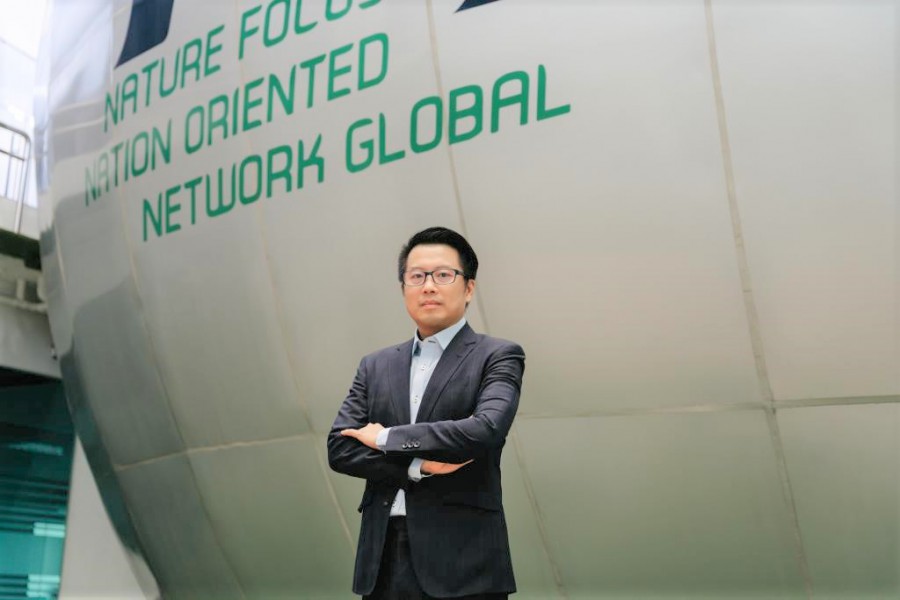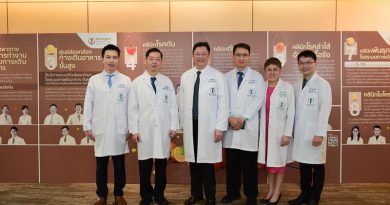MHESI Reveals Thailand Ranks 50th in World’s Best Startup Ecosystem and Bangkok Triumphs 71st Places in Best Cities for Startups
The Ministry of Higher Education, Science, Research, and Innovation (MHESI) by the National Innovation Agency (NIA) revealed the result of the Global Startup Ecosystem Index 2021 by the StartupBlink, the world’s most comprehensive startup ecosystem map and research center, on the Top 100 Country and the Top 1,000 City on the World’s Best Startup Ecosystem. For this year, Thailand still ranked 50th in the world, 4th in ASEAN after Singapore (ranked 10th), Malaysia (ranked 40th) and Indonesia (ranked 45th); while the Philippines and Vietnam ranked 52nd and 49th, accordingly. For the Top 1,000 Best Cities for Startups, Bangkok jumped 19 places from 90th to 71st in the world, with Chiang-Mai, Phuket and Pattaya also in the ranking.
Prof Dr Anek Laothamatas, Minister of Higher Education, Science, Research, and Innovation, stated that this is considered as good news for the startup community at the results of the Global Startup Ecosystem Index 2021 that Thailand still ranked 50th and has 4 cities in the top 1,000 cities with the best startup ecosystems. Bangkok jumped 19 places from 90th to 71st, with outstanding e-commerce and retail technology, which ranked 33rd in the world. From the rankings, Chiang Mai ranked 397th, Phuket ranked 442nd (moved up 428 places from the original 870th) and finally, a new city that has just entered the rankings for the first year, which is Pattaya, ranked 833rd. The main factors in the evaluation of the StartupBlink website are: 1) Quantity Score including the number of startups, the number of co-working spaces, the number of accelerator, and the number of startup related meetups; 2) Quality of startups and other supporting organizations consisting of traction (including traffic, domain authority, customer base), presence of branches and R&D centers of International Technology Corporations, branches of multinational companies, investment volume, the number of employees, the number of Unicorns, Exits and Pantheon companies, Presence of Global Startups Influencer, and the number of global startup events; and 3) The Business Environment consisting of ease of doing business and registering companies, internet speed, internet freedom, R&D investment, availability of various technological services (payment portals, ride-sharing apps, cryptocurrency), number of patents per capita, and level of English proficiency.
The figure has reflexed the commitment of both the Thai government and private sectors that jointly build a startup ecosystem that facilitates innovation with economic and social value. It also shows that Thailand is ready to become an “Innovative Country”. In the past, MHESI has played a major role in promoting and supporting the innovation ecosystem and startup ecosystem by focusing on the development of manpower, incubating and developing the capabilities of startup entrepreneurs, restructuring the country’s research and innovation system including the allocation of funds to support the country’s strategic needs
Dr Pun-Arj Chairatana, Executive Director of the National Innovation Agency, Thailand or NIA, commented that NIA has always given importance to the development of the startup ecosystem with the development in both the central and regional levels to spread the center of prosperity, build a livable city, improve the quality of life of urban people, and connect prosperity to the countryside. So, the regional graduates do not need to move to Bangkok to find a job, but be able to work and develop their hometown. One of the main mechanisms is the development of an “Innovation District” or the area with potential for innovation and entrepreneurship with a mix of institutions, schools, residences, retail stores and office spaces. This is to encourage the creation of open innovations or to work together and exchange ideas and technologies amongst each other.
MHESI opens the 4 hubs portal of Thailand’s startups “Bangkok, Chiang Mai, Phuket, Pattaya”, the sources of global startups.
For the four cities ranked in the rankings, the NIA has been active in the development of startup ecosystems. Bangkok has developed 4 innovation districts: Yothi Medical Innovation District (YMID) withprograms to develop knowledge of personnel and entrepreneurs to further advance medical innovations and drive investment in the area; Punnawithi Cybertech Innovation District with a trial activity of innovative business products and services in the area (Bangkok Cybertech sandbox) resulting in the sharing of information and resources on startup development between the public and private sectors; Kluaynamthai Innovation District that focuses on developing innovative businesses based on creativity, and digital technology based on the original industrial base of the district; Ari innovation district thatfocuses on developing the area into a testing area for testing new solutions (Sandbox) with AI, robotics and IoT technologies that meet the lifestyle of the new era; and in Chiang Mai with 2 innovation districts: Suan Dok Medical Innovation District (SMID) and Maejo Food Innovation District Agriculture. The NIA also has its first regional office and Global Startup Hub that is ready to meet the needs of people who want to start businesses, both Thais and foreigners.
Even though there is still no innovation district development in any area of Phuket and Pattaya, innovations have always been supported. In Phuket, the Open Innovation Road Show is organized in the southern region to support funding for innovative entrepreneurs in the area. There is a learning field project for electric power innovation in order to develop the potential of Thai youths to become innovators. While in Pattaya, there is an enterprise ecosystem development project started in the Eastern Special Development Zone (EEC), which is an area with the potential to facilitate the creation of new deep-tech sand grains and connect networks with partner organizations in the area to create innovations and find new solutions to problems. There are also innovation districts in the vicinity, such as Bangsaen Innovation District (Chonburi), Sriracha Innovation District (Chonburi) and Bangchange Innovation District (Rayong). Apart from these 4 districts, the NIA also has other districts in other areas nationwide, such as Srichan Innovation District (Nakhon Ratchasima) and Kimyong Innovation District (Song Kra), a total of 12 districts throughout Thailand covering every region.
“At the present, there are three Unicorns in Thailand, which the NIA will continue to develop the startup ecosystem in the hope to see more Unicorns in Thailand in the upcoming years, that will reinforce changes and create added value to the economy and the society of Thailand and its people,” Dr Pun-Arj concluded.




